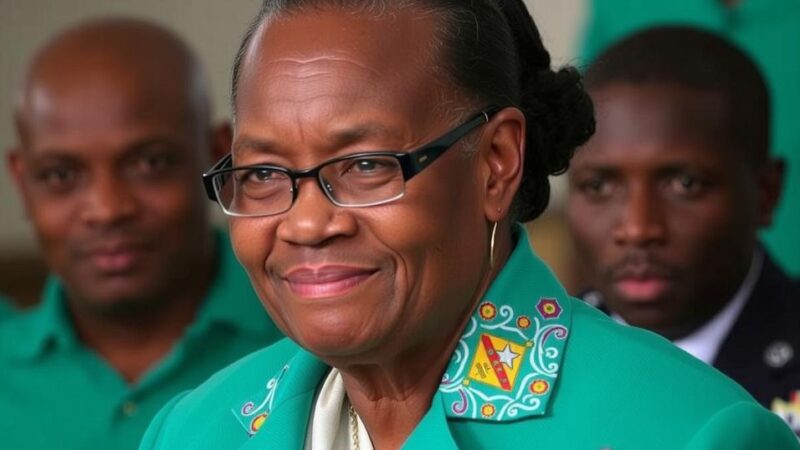Yamandú Orsi, a left-wing opposition candidate, won a closely contested presidential runoff in Uruguay, defeating governing coalition candidate Álvaro Delgado. With nearly 90% voter turnout, Orsi’s victory reflects a broader global trend of dissatisfaction with incumbent parties. He emphasized unity and a moderate reform agenda, aiming to address economic challenges and foster inclusivity as he prepares to take office on March 1, 2025.
In a closely contested runoff election, Yamandú Orsi, the left-wing candidate from the Broad Front coalition, has emerged victorious, defeating incumbent Álvaro Delgado of the center-right ruling coalition. This victory indicates a significant political shift in Uruguay during a year marked by anti-incumbent sentiments across the globe. As the results neared completion, Delgado graciously conceded, expressing his congratulations to Orsi and acknowledging the tight race. With Orsi securing approximately 49% of the vote compared to Delgado’s 46%, the election showcased a remarkable voter turnout of 90% due to Uruguay’s mandatory voting laws.
Celebrations erupted in the capital, Montevideo, where Orsi addressed an enthusiastic crowd of supporters, proclaiming the importance of liberty, equality, and fraternity in his leadership. He emphasized the need for unity and collaboration among all citizens to foster a better Uruguay, recognizing the diverse sentiments within the nation. Orsi’s moderate approach won favor compared to more populist campaigns in neighboring countries, reflecting a broader public discontent with post-pandemic economic challenges despite his commitment to market-friendly policies coupled with social welfare initiatives.
Outgoing President Luis Lacalle Pou acknowledged Orsi’s victory on social media, expressing his readiness to ensure a smooth transition. The election indicated growing frustration with slow wage growth and escalating crime rates, which ultimately cost Delgado’s coalition the presidency. Orsi’s platform includes targeted reforms aimed at revitalizing agriculture, attracting investments, and potentially revisiting trade relations with China, highlighting the need for strategic adaptation within the Mercosur trading bloc. His administration is set to commence on March 1, 2025, and he has pledged to build an inclusive society through dialogue and collaboration with all stakeholders.
The recent presidential election in Uruguay marks a pivotal moment in South American politics, reflecting a notable shift towards leftist governance amidst widespread discontent with incumbent administrations. This transition resonates with a global phenomenon of voters seeking alternatives to established power structures, particularly in the wake of economic hardships exacerbated by the pandemic. The political landscape in Uruguay has been shaped by the Broad Front’s commitment to social reforms, which have included key progressive policies under previous administrations.
In summary, Yamandú Orsi’s victory constitutes a significant political realignment in Uruguay, indicative of broader dissatisfaction with incumbent leadership amid ongoing economic challenges. His moderate stance and commitment to unity will be crucial as he aims to address pressing national issues while reconciling differing sentiments within the electorate. As Orsi prepares to assume office, the expectations for reform and collaboration are high, with many hopeful for a positive shift in Uruguay’s political and economic future.
Original Source: indianexpress.com







